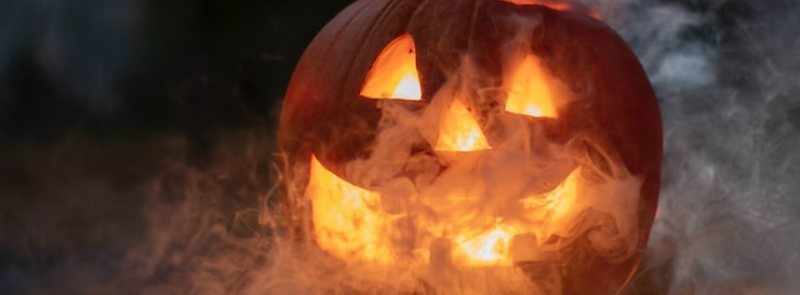
When It Occurs
Every October 31st
Timeline
Days Passed (384)
# Hashtags
#Halloween #TrickOrTreat
October 31st marks Halloween, a holiday with diverse origins, including pagan, religious, and secular influences.
The roots of Halloween trace back to the ancient Celtic festival of Samhain, observed as the Celtic New Year on November 1st. During Samhain, it was believed that ghosts returned to the earthly realm for a day. To ward off these spirits, people would light bonfires and don costumes.
Additionally, Halloween is associated with the eve of All Saints Day, a Christian occasion dedicated to remembering and honoring the departed. Across much of Europe and North America, Halloween is celebrated through lively parties, creative costumes, jack-o'-lanterns, pumpkin carvings, and the tradition of giving candy.
History and Origins
-
Ancient Roots: Halloween traces its origins to the ancient Celtic festival of Samhain, celebrated by the Celts in Ireland, Scotland, and the Isle of Man over 2,000 years ago. Samhain marked the end of the harvest season and the beginning of winter, a time when spirits were believed to roam the earth.
-
Christian Influence: In the 9th century, Christianity incorporated elements of Samhain into All Saints' Day (also known as All Hallows' Day), celebrated on November 1st, and All Souls' Day on November 2nd. The evening before All Hallows' Day became known as All Hallows' Eve, eventually shortened to Halloween.
Traditions and Customs
-
Costumes: One of the most recognizable aspects of Halloween is dressing up in costumes. This tradition is believed to have originated from the ancient practice of disguising oneself to ward off ghosts.
-
Trick-or-Treating: Children go from house to house in costume, asking for treats like candy with the phrase "trick or treat." The origin of this custom dates back to the medieval practice of "souling," where people would go door-to-door asking for soul cakes in exchange for prayers for the dead.
-
Jack-o'-Lanterns: Carving pumpkins into Jack-o'-lanterns is a popular Halloween tradition. It originated from the Irish legend of "Stingy Jack," who was said to roam the earth with a carved turnip lantern.
-
Haunted Attractions: Many communities set up haunted houses or attractions during Halloween, offering spooky experiences for thrill-seekers.
Modern Celebrations
-
Parties and Festivals: Halloween is celebrated with parties, festivals, parades, and community events featuring costume contests, pumpkin carving contests, and themed decorations.
-
Commercialization: Halloween has become a major commercial holiday, with businesses selling costumes, decorations, and themed merchandise.
-
Cultural Influence: While traditionally Western, Halloween has gained popularity in other regions through cultural exchange, movies, and media, leading to global celebrations and adaptations.
Symbolism and Folklore
-
Ghosts and Spirits: Halloween is associated with ghosts, spirits, and supernatural beings, reflecting its origins in ancient beliefs about the spirit world.
-
Witches and Magic: Witches, wizards, and magic are common themes in Halloween folklore, influenced by European witchcraft traditions and popular culture.
Safety and Community Involvement
-
Safety Concerns: Communities promote safe trick-or-treating practices and provide guidelines for costume safety, road safety, and responsible behavior.
-
Community Events: Many neighborhoods organize Halloween events to foster community spirit and provide safe environments for children and families to celebrate.
Halloween continues to evolve with cultural influences and modern interpretations while maintaining its roots in ancient traditions and folklore. It remains a cherished occasion for people of all ages to come together, have fun, and embrace the spooky and imaginative aspects of the holiday.


